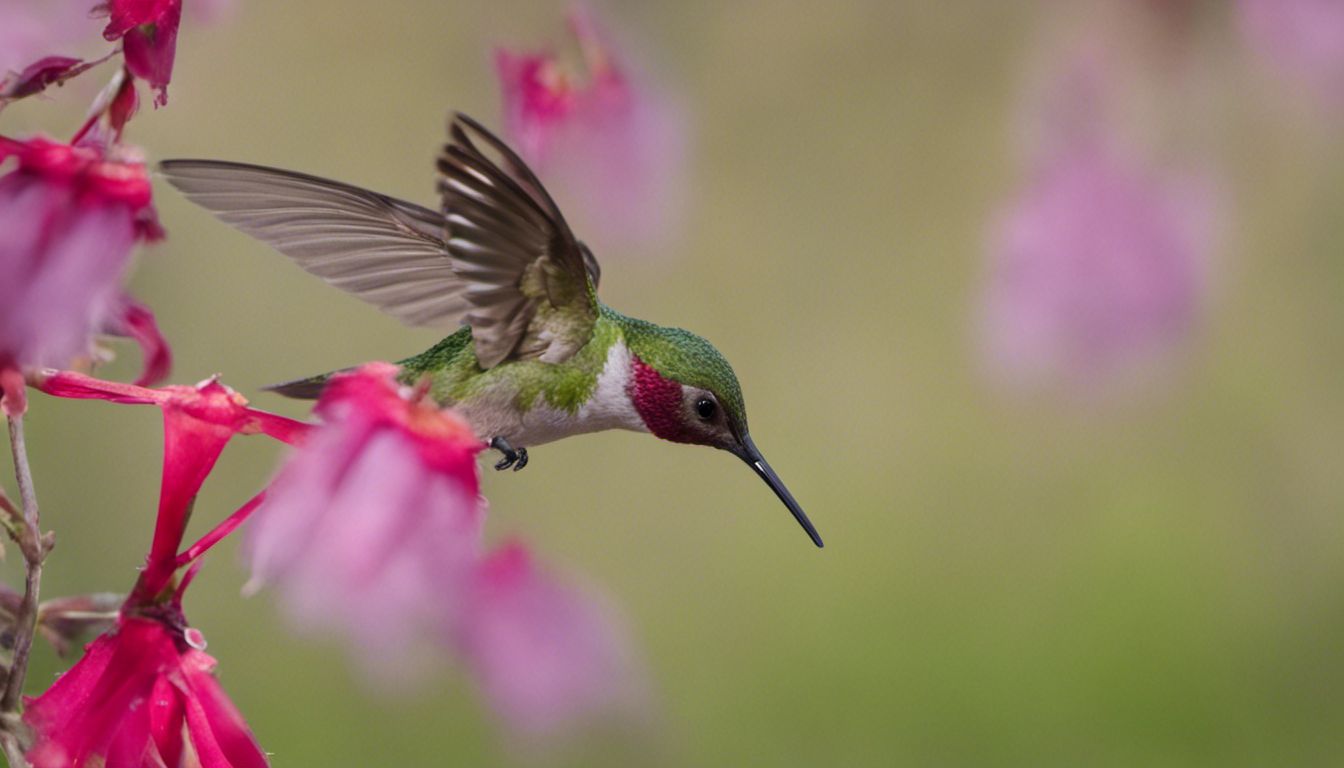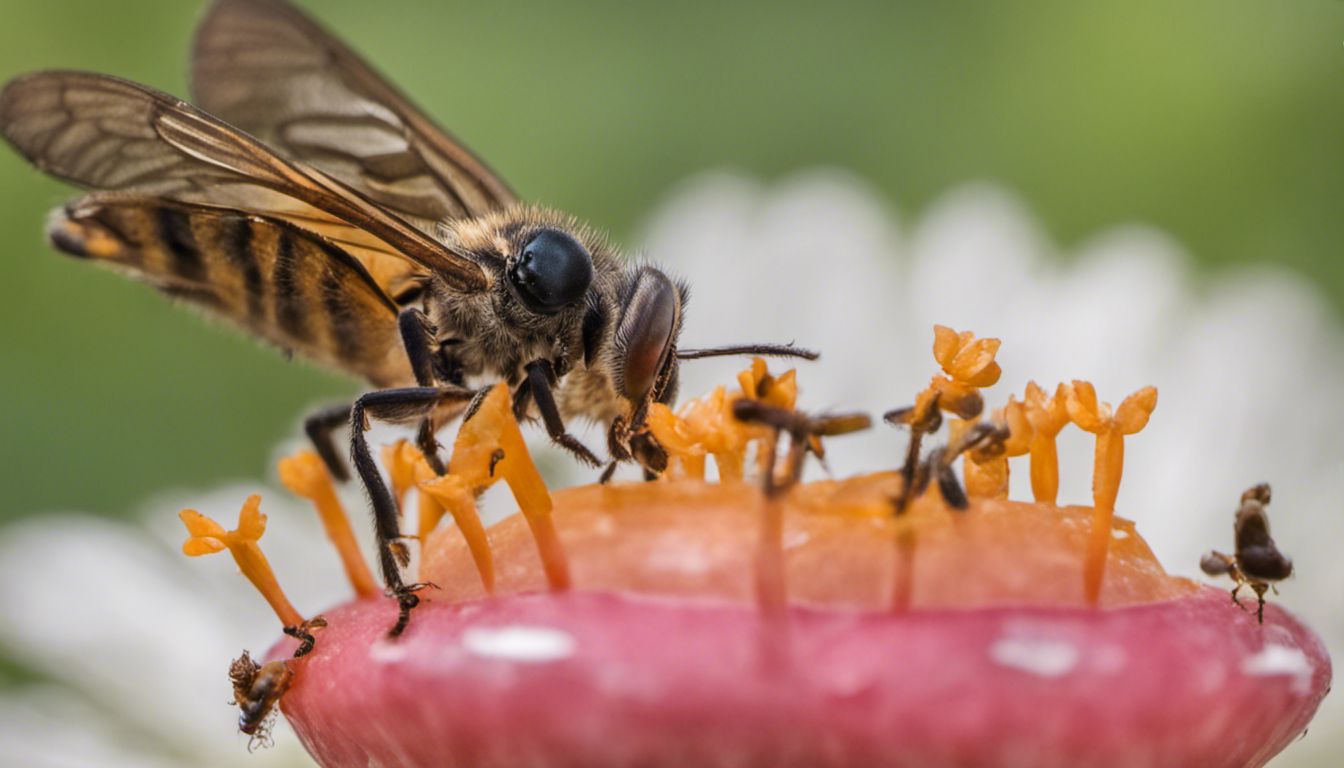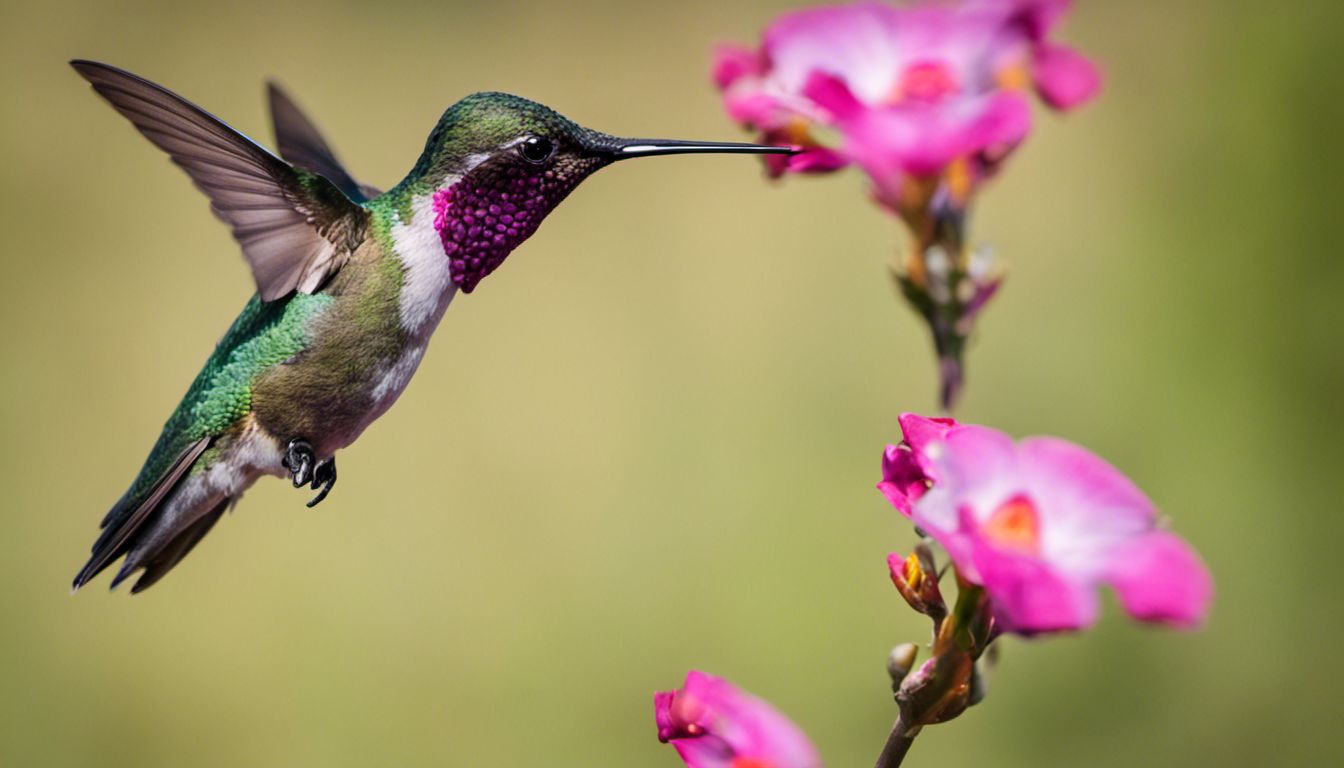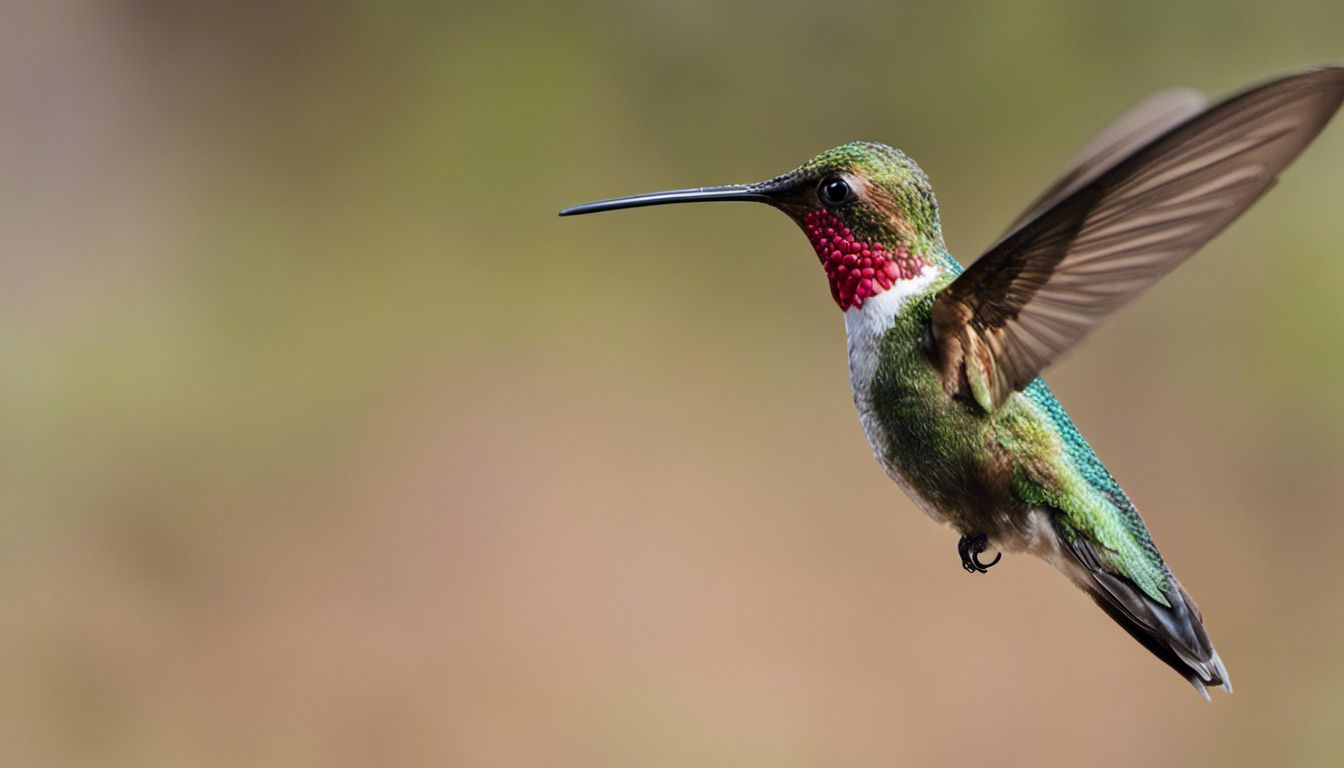A hummingbird consumes approximately half its body weight in sugar daily and supplements its diet with insects and spiders for protein. To maintain its rapid metabolism, a hummingbird may eat several times per hour.
Here are the key takeaways about the feeding habits of hummingbirds:
- High Energy Needs: Hummingbirds have incredibly high metabolic rates which necessitate frequent feeding.
- Sugar Consumption: They primarily consume nectar for energy, needing to eat around half their body weight in sugar each day.
- Protein Intake: Insects and spiders provide essential protein that nectar lacks, balancing the hummingbird’s diet.
- Frequent Feeding: Their eating patterns require them to feed multiple times throughout the day.
1. The Hummingbird’s Voracious Appetite

Hummingbirds are renowned for their sky-high metabolism, which is among the fastest in the bird world. This rapid hummingbird metabolism is the driving force behind their voracious appetite. These tiny creatures need a significant amount of energy to power their swift flight and hovering capabilities, which involves rapid wing flapping of about 50 to 80 times per second. This energy demand means hummingbirds consume about half of their body weight in food daily.
To meet their energy needs, hummingbirds have to feed very often – about every 10 to 15 minutes. It’s a full-time job for these birds, as they can visit up to 1,000 flowers per day for nectar alone. Their feeding frequency is crucial to their survival, letting them maintain the energy levels necessary for their high-speed lifestyles. Imagine going grocery shopping over a dozen times every day – that’s the kind of effort these birds put into finding food.
2. Nectar and Insects: A Balanced Diet

When it comes to what’s on the menu, a hummingbird’s diet consists of a well-rounded mix of nectar and insects. Nectar, their favorite food, is a crucial energy source, supplying the quick-release sugars needed to fuel their rapid wing beats. However, nectar is more like a carbohydrate-loaded energy drink, lacking in protein, which is vital for muscle repair and growth. That’s where insects come into play in the hummingbird diet. They snack on insects and spiders to fulfill their nutritional needs, ensuring they get enough protein.
While many people love to set up hummingbird feeders filled with sugar water to watch these magnificent birds, there are some misconceptions about feeders. They are a great supplement, especially during times when natural food sources are scarce, but they should not replace natural nectar sources and insects. It’s important to remember that hummingbirds still need the nutrients and variety that come from a diet gleaned from the wild. With the right balance, these feeders can offer a helpful boost to a hummingbird’s energy intake without compromising their overall health and dietary requirements.
3. Hummingbird Feeding Behaviors

Hummingbirds’ feeding habits are quite fascinating. These little dynamos eat frequently due to their fast metabolism; a hummingbird requires sustenance many times throughout the day. Their search for food is a delicate dance of natural foraging and visiting feeders. Understanding these behaviors can be both intriguing and useful, especially for those keen on attracting these birds to their gardens.
They are often seen flitting from flower to flower, seeking out those with the most nectar. When it comes to flower selection, hummingbirds are particularly drawn to bright, tubular flowers that are rich in nectar, such as salvia, bee balm, and trumpet vine. These types of flowers are not only excellent nectar sources but also are shaped in a way that accommodates the feeding style of hummingbirds.
- For bird enthusiasts wishing to support local hummingbird populations, here are some tips for turning your backyard into a hummingbird hotspot:
- Plant native flowering plants that are rich in nectar.
- Hang hummingbird feeders as a supplemental food source, and keep them clean and filled with fresh sugar water.
- Avoid using pesticides in your garden, as they can harm hummingbirds and reduce insect populations, which are an important part of the birds’ diet.
With these strategies, you can help create a safe and nourishing environment for these remarkable birds.

